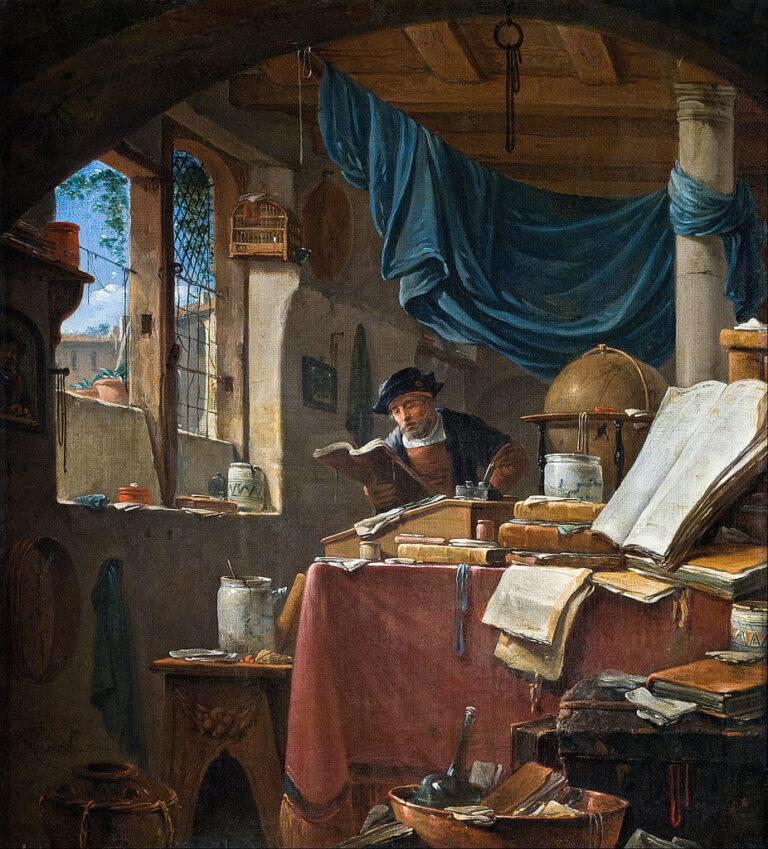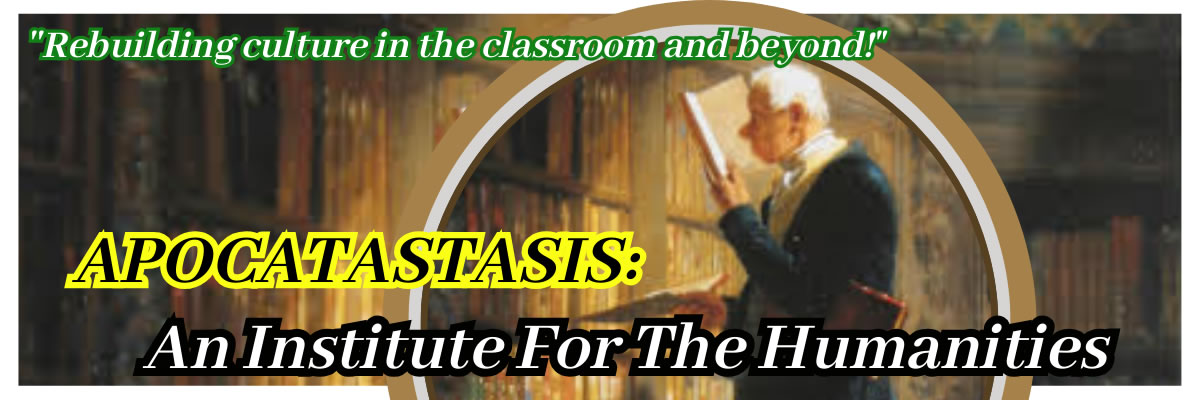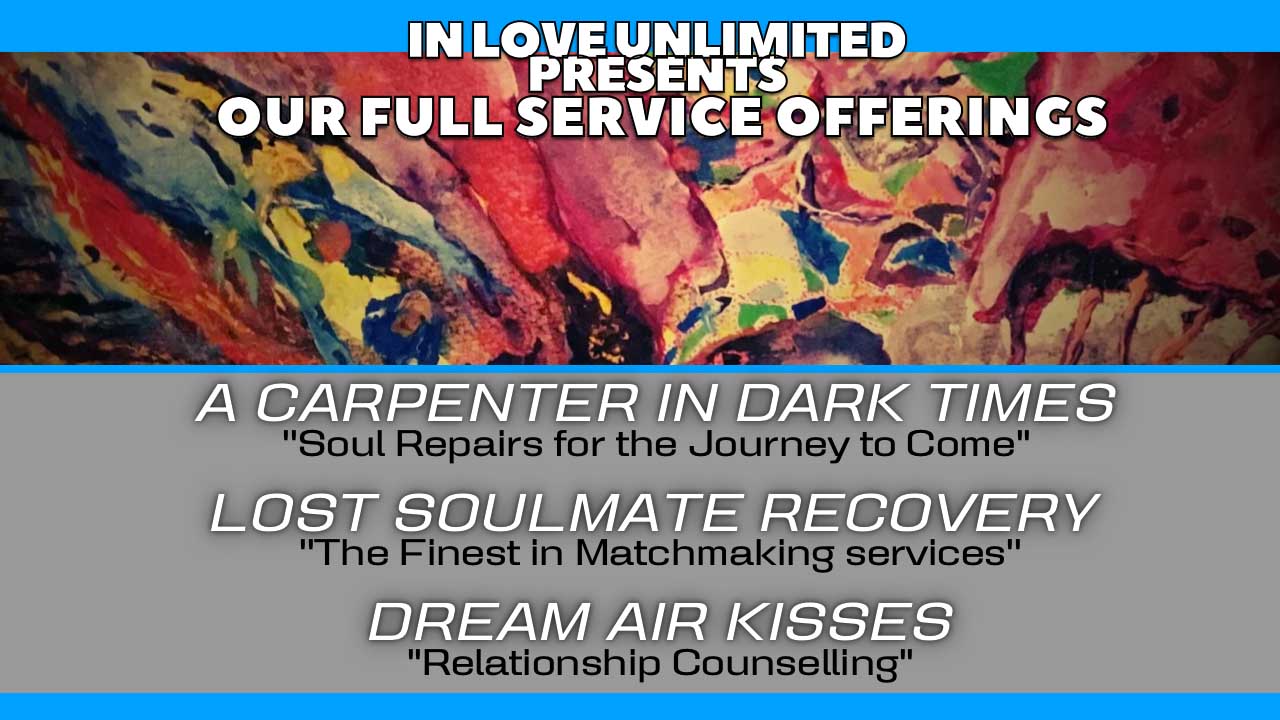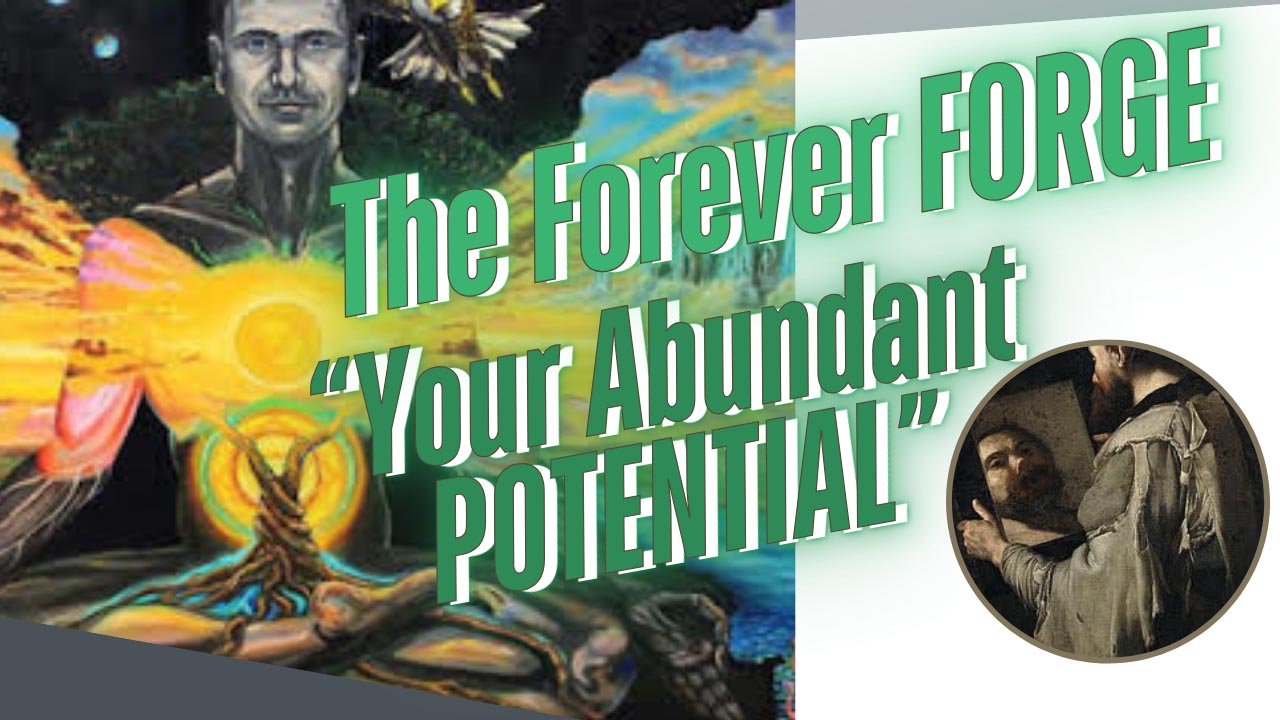One Year, Two Freakouts:
Notes From The Trenches Of Educational Restoration
By John Coleman
You’d never have me for a P.R. man. Once I taught at another school, St. Esau’s Academy. Those years were the subject of my latest book, An Excess Of Love (2024). Children are complex pets for the middle class, and there’s always a fair bit of egotism involved with those who undertake parenting.
One day a mother called me about their child’s grades. “My girl is an excellent student,” I was told. “No, ma’am, she has her virtues, but she is an average student,” replied I. Well, if vocal tones could reach through the lines and strangle, I’d not be here today. I haven’t the slightest ability to smooze, so you’ll never find me getting down with the Madison Avenue boys.
When that Connecticut community so dishonored itself that I could no longer plod on with that beleaguered school, I endeavored to beat a pedagogical trail myself; hence, the Apocatastasis Institute project this last decade. But alas and alack, a lass is what I lack, upsets follow me as day follows night; every year on the button I can count on one pointless puff. I must have really pissed off the gods in a past life, or I’m getting worse as I age, or I’m getting better, but this last twelve-month I’ve enjoyed not one, but two such dramatics.
“Oh, Johnny,” you ask, “care to notice what (or rather, who) all these events have in common?” Yes, wise guy, yours truly, present and accounted for! But they also all have the bourgeois mind in common, and it is this thing which I wish to examine. You see, it is the middle class who bellyache the most about formal education. It is their habits of thought, I suggest, even amongst those who advocate for educational restoration (apocatastasis), which is most responsible for the chronic failure of educational reform.
Within the two incidents this last year we will see the deeper dysfunctions which plague this conversation. Namely, an ignorance of the telos of academe, social habits unduly retarted by telephonic media, an inability to collaborate with another unless in complete agreement on every point whatsoever, and the automatic defaulting into evil suspicion upon the invention of some ideological divergence.
We have always believed in principals over personalities at the Institute, so I’ll only lay out the most general outlines of what lately occurred. What impressed me most is the divergence of the communities and topics at issue, on the one hand, and the similarity of reactions. It is not the point of this essay to vindicate one side or the other, nor have I any interest here in discussing the contended points. It is a day’s work to note the common errors being made, for in doing so we will be able to identify them in ourselves, and once excised – and absolutely attendant upon that excision – we will see the enduring betterment of formal education.
For, you see, the pedagogical huffing and puffing of a whole century and change has produced no lasting procedural alterations. I literally have essays on my shelf from a century ago making exactly the same points you’ll hear at the unschooling camps, podcasts, and homeschool forums of our day. This critique has flopped and flailed because those of us making the points we do, and working for the improvements we do, are more deeply damaged than we think by flawed understandings of schooling, its role in society, and the immaturity of our age.
Briefly what occurred is as follows:
Twice last year, in the springing and falling of the year, though we’ll reckon it as a single event, 501(c)3 Christians heretofore benefitting from our work found out about the role naturism plays in our pedagogical philosophy, and about our non-landed nudist club Litchfield County Naturists. These could hardly be accounted true discoveries as they’re quite freely advertised on our main site, in my writings, and on the Institute’s social media outreaches.
Arrah, being Americans, corporatized Christians, and middle class, in both instances these poor people immediately collapsed into morbid conclusions and evil suspicion. This reaction was so pregnant with analysis, in fact, that it is the subject of a book I’ll be publishing this month, Pearls Before Swine: Nudism, Education, & The High Trust Society. This text will be freely available for download on St. Anthony Of Padua’s day, June 13th, at this address.
In the second case, after several months’ preparation, certain people of a certain worldview, classically and consistently Left wing, let’s say, backed out of our Folkways Center upon the invention of my personal conclusions concerning what the world calls the Holocaust, and particulars surrounding the Covid-19 fiasco, as well as the eccentricities of my rather Medieval spiritual outlook. This conference was to be the showcase for their work, and they dropped it like a hot potato.
The particulars were different, the communities were different, but the reactions were identical. Getting to the rub, the most fascinating thing for me is that in both cases the Institute was accused of deception. I suggest upon this specific point that we see how even those of us involved in the educational critique and solution have forgotten what schools are for in a society.
Learning institutions do not exist so people of identical worldviews can confirm their beliefs. In America we have a rather circular and abrupt expression, certainly not family friendly, for such combinations. No, schools exist for collegiality, schools exist to get people of different minds speaking with one another in respect. Only in the telephonically-atrophied minds of our generation would divergent beliefs be interpreted with such evil suspicion. Schools are for getting people with different ideas to come together with respect and rigor in civil discourse.
People need not agree on everything – they need not agree on anything, in fact – in order to make this mission successful. We have got to recover this basic telos of learning!
Muscha, these freakouts are learning opportunities. Let us use these unpleasant events to tighten up our professionalism, our understanding of formal education as regards the larger community, and what is the raison d’etre of the teaching vocation.
Too many habits from social media, I’m afraid, are seeping into professional spaces like academe. We must always be wary of becoming creatures of our generation. And we schoolmen must always maintain an interpersonal professionalism which the overly-familiar trends at present war against.
Schools exist that the knowledge, debates, and course of the dead generations past be instilled in their living kin. This is so that the virtue, inspiration, and obligations of the human story steel the student for a life of bettering himself and his fellows. In a nutshell, this is agentic education.
There absolutely must be trust for formal education to do its work. This is impossible by the very design of the student’s day in the industrial classroom. The ceaseless breaking of concentration and relationships over the 15-20,000 hours of one’s education produce a mind which is retarded in its ability to connect two unrelated sciences, say mathematics and history; far more stunted is this soul’s ability to make deep interpersonal relationships then or in later life. Far too little attention is paid, by the by, to the role this youthful instability plays in wrecking marriages, priming men to be life-long jobbers, and creating such a shattered mental landscape that great crimes are openly committed by the so-called powers that be with little popular notice, and less concern.
Until agentic and relational education is established, and until the consumerist succubus which is one of the areas alternative education is unarguably worse than mainstream modalities is exercised from our attitudes towards schools and schoolmen, there will be no educational reform. Until that reform is establish, there will not be betterment in higher social combinations like the Church, the state, economics, nor culture. Grace builds on nature, after all.
You see, it is the nature of Apocatastasis Institute to alienate everybody, so deep is our critique, so profound is our salve. To my educational colleagues, I am not a real teacher; to the religious bastards I am too pagan; to the pagans I am too Christian; among the Christians I am too Catholic for the protestants, and too protestant for the Catholics; to the leftists I am too right wing, and the right wing has written me off for my leftism; the liberals and conservatives, on their parts, are much too respectable to have anything to do with me (and I’m only too happy to bow out of the forgettable pretenses of those forgettable yoes); the conspiracy people find in me too much of the normie, the normies too much of the radical; and all this with my family whispering “Autistic!”, “Fool!”, “Eccentric!” morn and night. I am a teacher. Here I stand, I can do no other. So help me God. Amen.
To explore these educational topics more deeply I’ve thought to relay a vignette which lately happened to me. You see, in the course of last year’s dramatics I made one mighty fantastical journey through hell, purgatory, and heaven. The Cumaean Sybil and Virgil were on sabbatical down in Mar-a-Lago with Jair Bolsonaro, so heaven paired us with Eric Petersen, the Philly folk singer, R. Budd Dywer, the Pennsylvania treasurer infamous for his television suicide, and Sullivan Ballou, an early casualty of the U.S. Civil War. Like a family, like a classroom, you never know who heaven will send you!
The scene to come appears in the forthcoming Pearls essay. It occurs during the final heavenly stretch of our journey. Having mulled on the body, child rearing, and schools through hell and purgatory, we meet in heaven Margaret Mary Vojtko. Vojtko’s too was an infamous death, though hers was a matter of neglect. You ought to pause your reading now and read the moving piece, The Sad Death of an Adjunct. Too much attention is given to the disservice formal learning provides to students, and not enough is given to how poorly the field is serving its scholars. If we came to an appreciation of this, the fruitless adversarial tone which besets alternative education, students/family vs. teachers/administration would dissipate and real traction and betterment would occur.
Anyway, let me go take some aspirins after this year of freakouts. I’ll leave you in the capable hands of Dwyer, Petersen, Ballou, and Prof. Vojtko.
As we breast the hillock we come to a clearing. In the distance is a restaurant with a red pavilion. We catch our breath and sit on a trunk felled in a long-forgotten storm. Between us at the treeline and the restaurant is a fair half mile, or full mile.
Erik and Sullivan are off talking by themselves; Budd Dwyer and I by ourselves. Across the field walks the most grandmotherly old woman you ever did see.
“Ahoy, partner!,” Budd roars across the distance. “Bonjour, pilgrims!,” we heard back in a voice louder than you might imagine from one so slight.
“And who might you be?” Bud asked, in the well practiced cadence of a politician, placing a nail file with Dwyer ‘88 written across the handle.
“I am Margaret Mary Vojtko, late of Duquesne University; literally late, deceased. The administration there killed me.”
“You might say the same of me; the bureaucrats let you down as they let me down; yours in Duquesne, mine in Harrisburg,” Dwyer said.
She put her wrinkled paw on Budd’s upper arm, and in the kindest voice broached that subject we had been wondering about this whole journey long. “I’m old enough to remember your death, Budd. What a tragedy.”
He swallowed, but not in anxiety.
“A tragedy, yes. I didn’t want to go; how I loved my wife and daughter! But it had to be done. I had to do what I did to get their attention.”
“Why didn’t you just take a plea; take a few licks like everyone else and reboot your political career a few years later. No one would have cared. Even in the ‘80s politicians had bounced back from far worse scandals,” Margaret Mary said.
“Because if I took a plea I would be lying. You can’t be in my line of work for five minutes,” I think we all caught his present tense, “and not learn the stereotype of the politician is well earned. And, you know, Margaret, there is something about those environments that you can put up with things, and pretend you don’t see things when you do, and pretend your coworkers don’t have the parties they do, and give the bribes they do, and compromise their rhetoric they do. But in such places, at least with men like me, it’s not like water under the bridge. No, each overlooked crime is water behind a dam. And when all that nastiness and cant and graft turned for once on me, when I wasn’t a bystander but a subject, that dam in Budd
Dwyers’ heart burst. I knew I had to get people’s attention.”
“Budd, did you ever think of the distress your death caused to your family, those at that
Scranton press conference, and the people watching on T.V.?” Vojtko gently asked.
Of course I did. So help me, of course I did! But justice was more important. When I was a young man I remember another young man, Mario Savio, and he gave an impressive impromptu speech at Berkeley. He said sometimes things get so oppressive that one can only throw themselves into the gears of tyranny, one’s only option is to throw themselves head first into the Gap Of Danger. That’s what I did, terrible as it was.”
There was silence for a moment. Then Margaret Mary spoke up.
“You know, I never killed myself Budd, neither for a cause that was just, nor one that was unjust.
I just died, an old woman, forgotten, cold, sick, on her front lawn, with a cease and desist order from the Catholics of Catholic Duquesne. Compassionate people had compassion, and said my death ought to start a “conversation”; capitalists or normies or the herd said I was foolish, and what did I expect being an adjunct professor. I think if I wasn’t so old and grandmotherly they would have said harsher things still.”
“Did your death cause a ‘conversation,’ Margaret?” Dwyer asked.
“Did your death clean house in a crusade of justice in Scranton?” Vojtko asked.
“We both know the answer,” Dwyer said for the two of them.
“But we are the marcher lords, Budd. We are the souls who stand in the vanguard of humanity and do single combat with the ugliest behaviors of society. There’s a very rare sort of soul, Budd, who never let that infantile adamancy for justice die out. You know the sort; you know the indignity of a child who sees the ballgame’s rule violated. That faculty gets seared in most people as they become adulterated adults. By the time they’re in their twenties they shuffle about muttering, ‘That’s the way life is. That’s the way the world works.’
Budd was nodding along with the rest of us, for Erik and Sullivan had rejoined us from the margins. He was nodding in the way misunderstood people do when they finally alight on one who sees them.
The old professor continued, “We are the marcher lords, Budd, we are the scouts of virtue in the hinterlands. Never did society improve itself but that first one- or two- or three hundred years of us had to die in ways quiet and violent, seen and unseen, avenged or forgotten. Only until the Immaculate God sees there are enough souls geared for virtue, virtue ‘til the death, only then will he send grace and sobriety to mankind.”
I shifted uneasily, having a fierce thirst on me by this hour.
“Not that type of sobriety,” Sullivan said, slipping me his flask.
“So we were filling up the scales,” Budd asked?
“You could say that, much like the old martyrs. ‘The blood of the martyrs is the seed of the Church,’ Turtullian said. But what the religious yoes nowadays don’t get is that these are meta-principles, and any sacrifice of innocence and goodness against tyranny and cant will eventually provoke the same boon of grace.”
“Margaret Mary, why did you stay on in academe? It is a lost cause,” said Budd.
“Because something being a lost cause does not give one leave to give up the fight. You are thinking like an English-speaker,” Votjtko said, her words getting some umph behind them now.
“Come again?” Budd asked for us all.
“I taught French,” Margaret Mary said, herself reconciled to the past tense, “The French are of Gallic stock.”
“I’m sorry, I don’t follow.”
“I stayed on teaching for the same Gallic reason you blew your brains out: it doesn’t matter if a blessed thing was changed; what mattered is we asserted the right, the devil may care. Englishmen, and the Romans whom they model so much of their worldview, defined victory as the conquering of your foe, the fixing of your problem. The Celts, of whom the Gauls were a subgroup, defined victory as never giving up. Between these two things is a world of meaning, Budd.”
We shuddered as we grasped the obligations of the second definition.
Reading our minds, the old French professor went on, “To have the Celtic soul means never giving up, throwing yourself right into the ‘machine’ your Mario Savio mentioned. Victory does not mean success over your opposition. Victory is never surrendering.”
“I’d not be able to put it so eloquently, Margaret, but that surely was the spirit I went into that press conference with. You’re a good teacher, alright. What is the role of school’s in society? The raison d’etre of the state seems to oscillate between order and the Kafkaesque, but I’ve never really thought about the social role of schools.”
Margaret bid us walk over to the log separating the woodline and the field. We sat down.
She, always the teacher, remained standing.
She began, “The role of schools, everything from kindergartens to universities, is to carve out a space where the lone activity of learning may have its due. Schools are to hew a space amidst the hurdy-gurdy of life where the non-commercial, the collegial, and the leisurely may have free play.
Whether or not Plato was right and education should be reserved for later in life, it happens in our time and clime that formal learning takes place for most people in youth. In an immature society like ours was – and begorrah, I’m sure it’s gotten worse since we were trotting about – this usually wars against the student. Immature parents are too apt to replicate the busy-ness of television youth onto their two, and exactly two, children. Their children are more than happy to oblige, men being lazy in youth, and they are too apt to go in for sports and jobs and such nonsense, and neglect their studies.”
I nodded energetically from my log.
“It needn’t be this way,” Vojtko said in an idealistic mood. “If the society matured and circumscribed the waste of time and energy which jobs and sports levy against formal education, if parents saw the teacher as a professional and not a service sector servant, those classroom days could be most enriching indeed. And in such an enriched environment the youth would have the daily example of virtue put before his eyes, that it become an easy thing when he is eventually off in the cynical world. The surest way to initiate the adulterated cynicism of adulthood, the gray souls of gray haired middle age, is to put a young person into worldly environments and schedules before their time. So, Budd and you all, school exist to forge a learning space and to create in such a training ground for virtue that the soul be in grace here and hereafter.”
Erik Petersen spoke up.
“You said teachers need to be considered as professionals, not workers. Can you explain more?”
“Of course,” Margaret Mary said, shifting from one hip to another. “Since the 1980s, American life increasingly became more and more consumeristic. The individual went from fundamentally being a child of God in the Medieval period, to fundamentally being a citizen in the Modern period, to fundamentally being a slob in the Postmodern period, whose only purpose in life is to have his wishes met by people whom he pays. This began with seemingly sensible things, or at least the ad men said so, like privatizing telephone exchanges and madhouses. But what was behind this was an agenda much bigger than The Gipper’s administration, and so that privatizing, consumerizing energy kept growing so that by the time I was in the classroom at Duquesne students were filling out performance surveys each semester. This was a practice directly taken from the retail and fast food industries. Time was, students were like monastic novices; they were to be kept knocking at the door, so to speak, for several days, as they sought their professor’s knowledge and insights. That was all out the window by the time I died.
Students were grading us like the most common gas caddy.”
“That’s probably why so few cared when you died,” Sullivan piped up. “People have come to see teachers as throwaway commodities, like any paper drink cup or fast food wrapper.”
Margaret Mary nodded silently.
“But the teacher is a professional. They represent a tradition, a discipline. They are not brains for hire. This is why tutoring is so dangerous. It gives the impression the scholar is an a la carte lacky. We are not such things. We are the masters of our sciences. The teacher is to react to the vulgarization of his vocation as bruskly as the couple is to eject the Peeping Tom in their bedroom, as the priest is to bounce the meddler on the altar. For fifty years we have not done this, and so we are graded and spoken to like supermarket baggers. And, I’ll tell you, we deserve to be treated like supermarket baggers as long as we keep this up. If we wish to be treated respectfully, we need to be worthy of respect; if we wish to be treated with dignity, we need to act with dignity; if we wish to be treated professionally, we need to act professional. Scholars will be taken seriously when they take themselves seriously. And this begins with teacher autonomy. The professor is a law unto himself in class, obliged only by the virtues and the specifics of his discipline. Period.”
“And what of collegiality?” I asked about that most forgotten of concepts.
“More than anything else at present, collegiality is that virtue which school must bring to society with greatest haste. Collegiality is the idea that I get to say what I want to say, and you get to say what you want to say, and we can both be colleagues. Because men no longer read we see the consummate rise of black-and-white, friend-or-foe thinking. There are things worth seeing in black-and-white, and there are people who are your friends and foes, but what you’re seeing in the land of the living now is that this bi-polar thinking is eating up more and more facets of life, academic as soon as interpersonal.”
I nodded at this, thinking about last spring.
“This limitation really is a limitation of imagination. Of course it’s to be expected given the effect telephonic media has on the imagination. But like the teacher being a professional, it is given to schoolmen to assert this vital educational dynamic.”
“But people think if you work with them then you must hold all their ideas,” Budd said.
“That you agree with everything they believe.”
“The fools! When I was young this was not the case,” Margaret Mary snapped. “How quickly things can decline in a society. Well, if they can decline fast they can reform fast; but only if we’ve a will. You the living need to chill out and work with people you disagree with. They won’t bite.”
“Good luck with that one, Professor,” I said, unable to contain myself. “You and I know iron sharpens iron, and that one needn’t have a perfect agreement, or even a general agreement, but people get so defensive.”
“Then they ought to talk over their intellectual differences. They might learn from each other, or they might come to a different conclusion; in either instance they are learning, and that is the point of a school. Men must always be aware of becoming creature’s of their generation, and this is doubly so in aliterate and telephonic days, when everything is a personality contest and a matter of subjective appeal.”
“Why do people think you tricked them when they find out there is some area where you didn’t act in perfect agreement?” Erik asked, the sun on his face.
On the one hand, the answer is the same as before: because people are no longer reading. The invention of any intellectual disharmony withheld by another is viewed by these telephonically-stimulated souls as a type of deception. Poor things! Such withholding is usually because the other is being hospitable and open to learning, but begorrah, schools these days are something the last place you want to go for knowledge, just like churches are more times than not the last place you’d want to go for God.
Show the skittish graciousness and they’ll come around to your mind. Continue to give them a hearing, let them know that at a school they should be comfortable saying what they believe, just as you are comfortable saying what you believe, and that any topic where different parties really are at an impasse can be an opportunity for happy academic dialogue. This is all collegiality, that most missing aspect of academe today.”
She looked at her watch.
“Well, gentlemen, I must be off. I’ve a set of French classes to teach; the angels for the first half of the afternoon, the saints through Vespertide.”
“They have classes in heaven?” Sullivan asked.
“Of course they do, especially for incorrigible lifer teachers like me.”
“Did they at least make you full-time, unlike those bastards at Duquesne?” I asked.
“Full-time!” She chuckled, calling over her shoulder. “They made me dean of the whole French University in heaven.
Link to Apocatastasis Press HERE.















